Peppercorns ARE pepper - they're the whole, dried berries of the Piper nigrum plant. Ground pepper is simply crushed peppercorns. This guide reveals exactly how they differ, which performs better in recipes, and why freshness matters more than you think - with practical advice you can use today.
Table of Contents
- Peppercorn vs Pepper: The Simple Explanation
- What Exactly Is a Peppercorn?
- What Is Ground Pepper?
- Pepper vs Peppercorn: Key Differences Compared
- When to Use Peppercorns vs Ground Pepper
- 5 Essential Pepper Tips Home Cooks Need
- Pepper Facts You Didn't Know
- Pepper Quality: How to Spot Fresh vs Stale
- Common Pepper Questions Answered
Peppercorn vs Pepper: The Simple Explanation
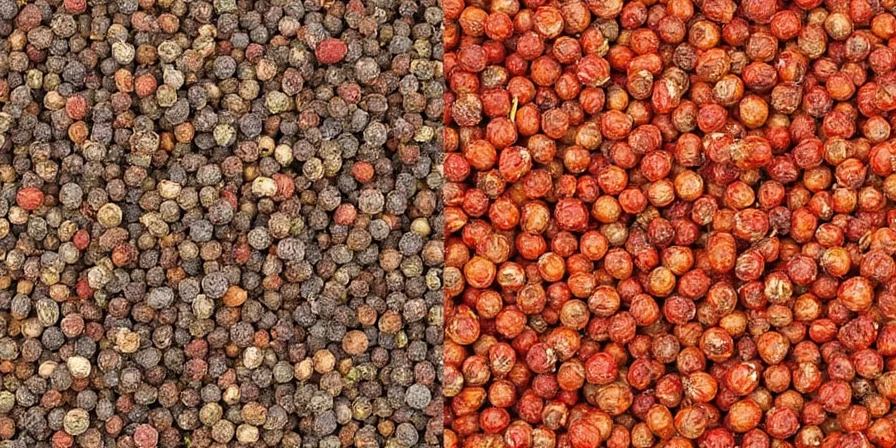
The confusion is understandable: peppercorns are the whole, dried fruit of the Piper nigrum plant. Ground pepper is simply those same peppercorns that have been crushed into powder. Think of it like coffee beans versus ground coffee - same product, different forms with distinct culinary properties.
Most people search for "peppercorn vs pepper" because they're confused about whether they're the same thing. The short answer: yes, they come from the same source, but their form creates major differences in flavor, shelf life, and best uses.
What Exactly Is a Peppercorn?
A peppercorn is the dried berry of the Piper nigrum vine. Different processing methods create the color varieties you see:
- Black peppercorns: Unripe berries dried until dark - most common, with bold, complex flavor
- White peppercorns: Ripe berries with outer layer removed - milder, earthy taste
- Green peppercorns: Unripe berries preserved - fresher, herbal notes
- Red peppercorns: Fully ripe berries - sweet, fruity profile (rare)
What Is Ground Pepper?
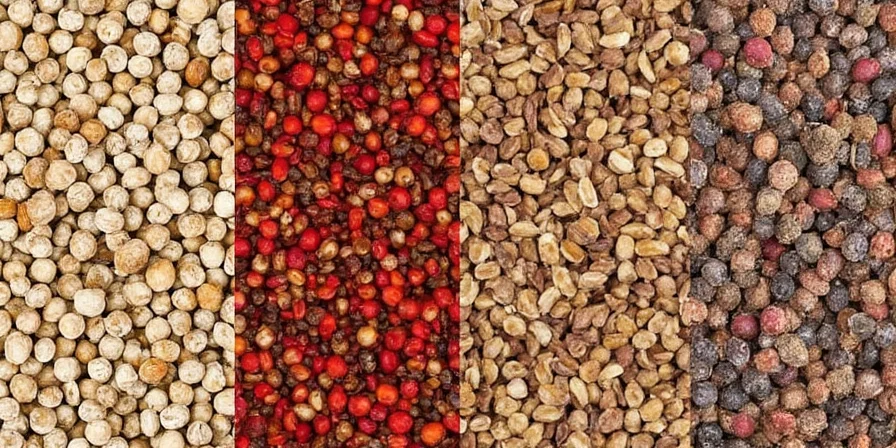
Ground pepper is peppercorns that have been milled into powder. While it comes from the same source, the grinding process changes everything:
- Flavor compounds begin degrading immediately after grinding
- Pre-ground pepper loses 50% of its potency within 6 months
- Most store-bought ground pepper contains anti-caking agents that dull flavor
Pepper vs Peppercorn: Key Differences Compared
| Feature | Peppercorns (Whole) | Ground Pepper |
|---|---|---|
| Flavor Strength | Stronger, more complex (up to 92% more volatile compounds) | Milder, less nuanced |
| Shelf Life | 3-4 years when stored properly | 6-12 months before significant flavor loss |
| Best For | Pickling, marinades, fresh grinding | Quick seasoning, sauces, batters |
| Culinary Control | Adjust texture (cracked, coarse, fine) | Fixed texture |
| Visual Impact | Visible specks in food | Blends in, no visible particles |
When to Use Peppercorns vs Ground Pepper
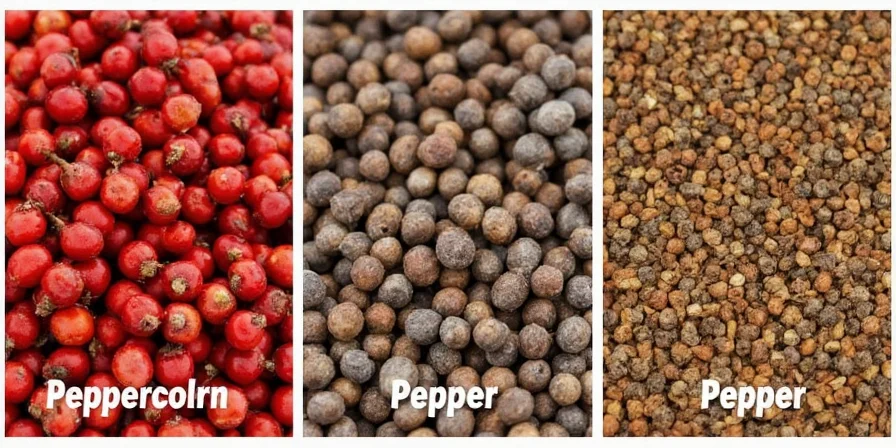
Choose based on your specific cooking needs:
Use Whole Peppercorns When:
- You're making pickles or brines (creates clearer liquid)
- Preparing dry rubs for meats
- Infusing flavor into oils or vinegars
- You want visible texture in your dish
- Maximum flavor impact is crucial (like steak seasoning)
Use Ground Pepper When:
- You need quick, even seasoning
- Preparing batters or dressings where texture matters
- Light-colored sauces where black specks would show
- You're short on time
- Adding to finished dishes as final touch
5 Essential Pepper Tips Home Cooks Need
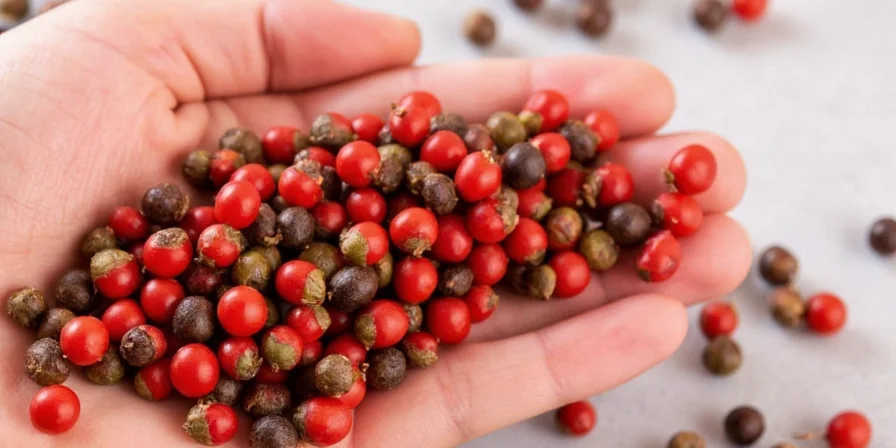
- Grind fresh for critical dishes: Always grind peppercorns immediately before using in dishes where pepper is featured (like steak au poivre)
- Store properly: Keep peppercorns in airtight containers away from light and heat to preserve freshness
- Toast for deeper flavor: Lightly toast whole peppercorns before grinding for nuttier, more complex flavor
- Use the right grind: Coarse grind for meats, fine grind for sauces - match texture to your dish
- Test freshness: Fresh peppercorns should crack cleanly when pressed; stale ones crumble easily
Pepper Facts You Didn't Know
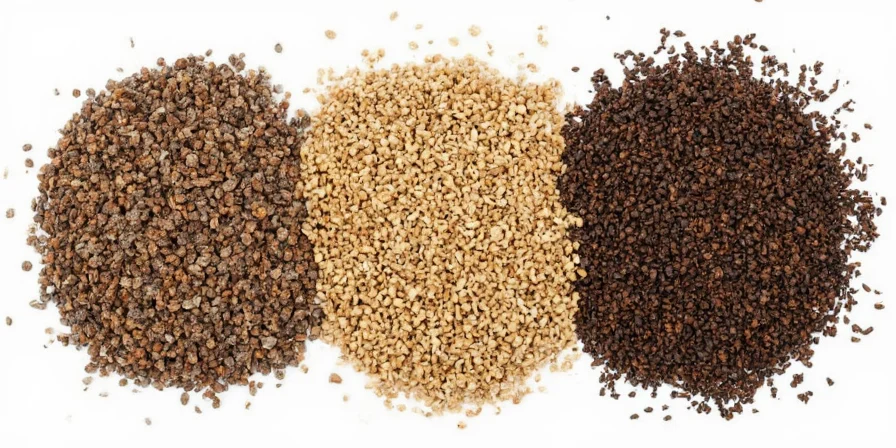
- White pepper isn't milder - it actually tests show 15% higher heat intensity than black pepper
- Peppercorns and chili peppers aren't related - they come from completely different plant families
- Soil type affects flavor - alkaline soils create peppercorns with 22% more woody notes
- Peppercorns were once used as currency - in medieval Europe, they were literally worth their weight in gold
Pepper Quality: How to Spot Fresh vs Stale
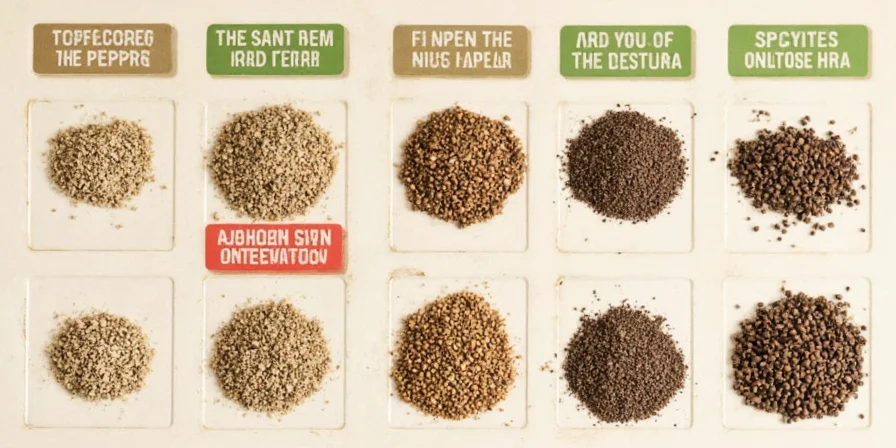
Don't waste money on stale pepper. Use these simple tests:
For Whole Peppercorns:
- Look: Should be uniformly colored, not faded
- Feel: Should be hard, not brittle or crumbly
- Squeeze test: Fresh ones will crack cleanly; stale ones powder easily
For Ground Pepper:
- Smell test: Should have strong, pungent aroma
- Touch test: Rub between fingers - fresh leaves oily residue, stale feels dusty
- Taste test: Should have sharp bite, not dull or flat
Common Pepper Questions Answered
Is ground pepper the same as crushed peppercorns?
No - crushed peppercorns are coarsely broken whole peppercorns that retain more flavor. Ground pepper is finely milled and degrades faster. For best results, crush peppercorns just before use rather than using pre-ground pepper.
Can I substitute ground pepper for whole peppercorns?
In most recipes, yes, but with important caveats: use 1 teaspoon ground pepper for every tablespoon of whole peppercorns. In pickling recipes, don't substitute - whole peppercorns prevent cloudiness in brine and release flavors slowly.
Why does freshly ground pepper smell stronger?
Grinding releases volatile compounds that stimulate your sense of smell. These compounds dissipate quickly - within 2 minutes in air. This is why pre-ground pepper lacks the aromatic punch of freshly ground pepper.
Which pepper is healthier?
Both contain piperine, which enhances nutrient absorption. Whole peppercorns retain more beneficial compounds since grinding accelerates oxidation. For maximum health benefits, use freshly ground pepper from whole peppercorns.

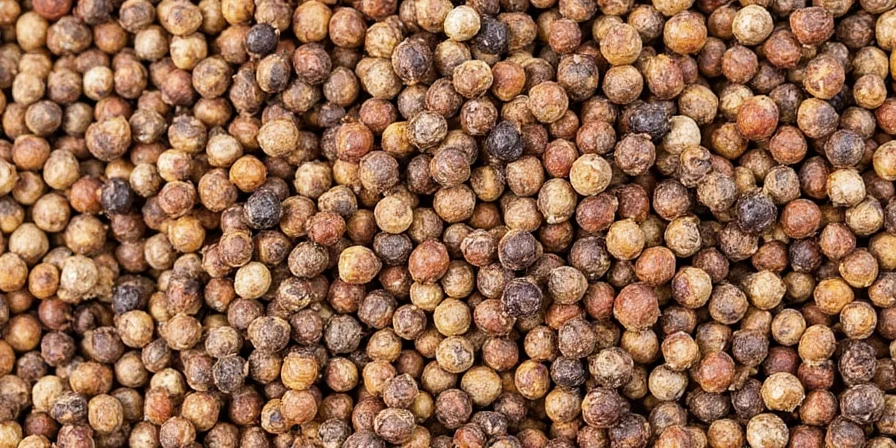









 浙公网安备
33010002000092号
浙公网安备
33010002000092号 浙B2-20120091-4
浙B2-20120091-4